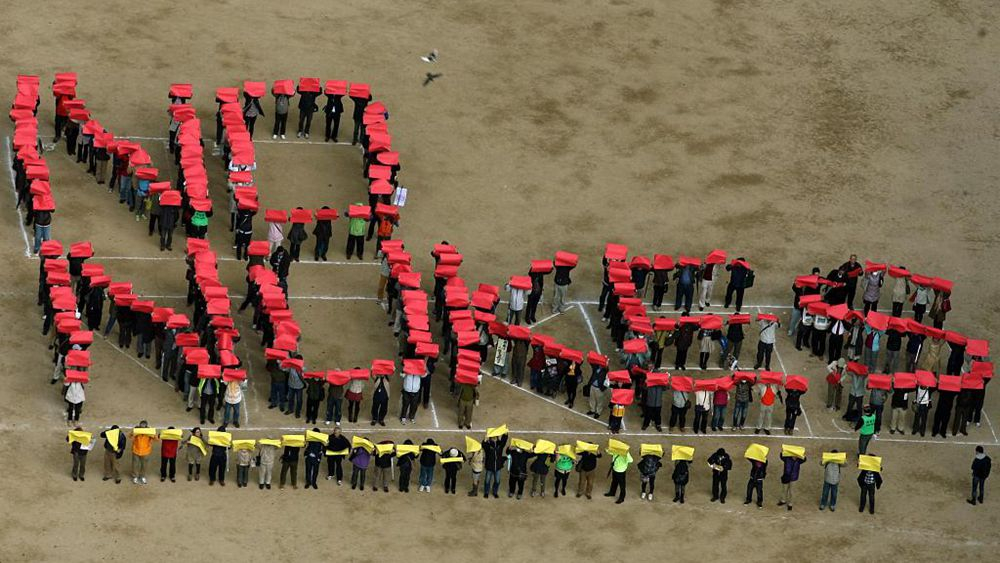While Hiroshima and Nagasaki in Japan still suffer from the after-effects of the two bombings in 1945 and people worldwide cannot hide their fear when they talk about nuclear weapons, it's still uncertain whether the world could be nuclear-free.
The discussion of the 2020 Review Conference of the Parties to the Treaty on the Non-Proliferation of Nuclear Weapons (NPT) is one of the main agendas of the meeting of the five major nuclear nations in Beijing on Wednesday.
The five countries, namely the U.S., Russia, the UK, France and China, are the only countries that have the right to own nuclear weapons, according to the NPT, which took effect in 1970 with a bid to prevent the spread of nuclear weapons.
At the last review conference held in New York in 2015, the member countries of the Treaty failed to reach consensus on the further development of the Treaty.
"The review conference of the Treaty in 2015 was widely thought as an unsuccessful one as it did not issue a final outcome document," said Zhao Tong, a nuclear research expert from the Carnegie-Tsinghua Center for Global Policy's nuclear policy program.
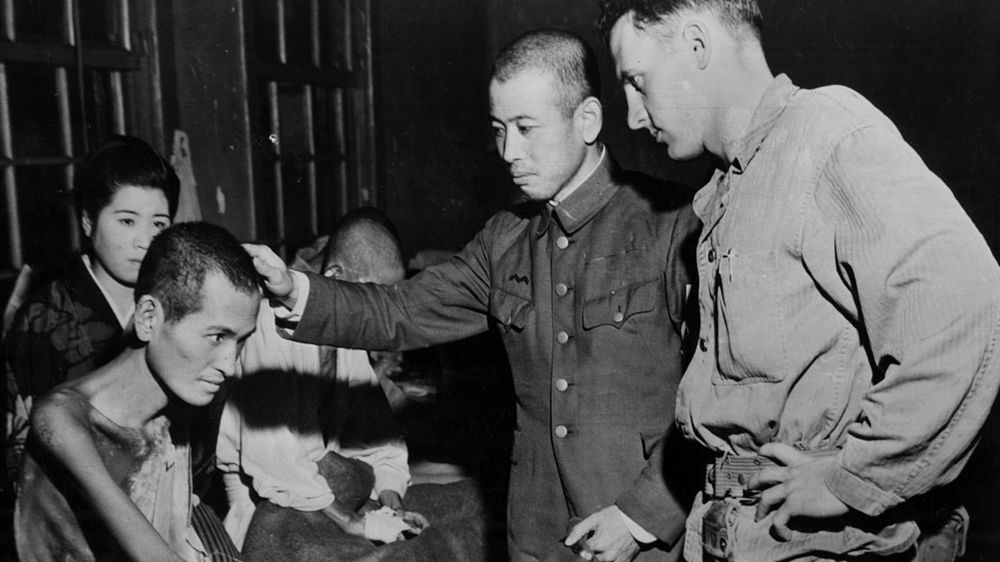
A victim, 2nd from left, of nuclear explosion in Nagasaki, August 9, 1945. /VCG Photo
A victim, 2nd from left, of nuclear explosion in Nagasaki, August 9, 1945. /VCG Photo
"If the five-yearly conference in 2020 is unsuccessful again, then the failure of the two consecutive conferences may greatly weaken the international community's confidence in the widely-recognized non-proliferation mechanism," said Zhao, who thought the Beijing gathering could lay a groundwork for the 2020 conference.
Born in the midst of the Cold War (1947-1991) characterized with the military competition, especially the nuclear competition between two super powers, the decades-old NPT has faced increasingly more challenges in the post-Cold War era.
Nothing could be more terrifying than the U.S. President Donald Trump threatening in October that the country would withdraw from the Intermediate-Range Nuclear Forces Treaty (INF), which has been recognized as a cornerstone for maintaining strategic equilibrium between the two countries, which are widely acknowledged as the two biggest owners of nuclear weapons.
In consideration of escalated tensions between Russia and Ukraine over the Sea of Azov, the prospect of the U.S. leaving the INF pact would deal a heavy blow to the security outlook of Europe, which becomes the frontline for the military confrontation between the U.S. and Russia.
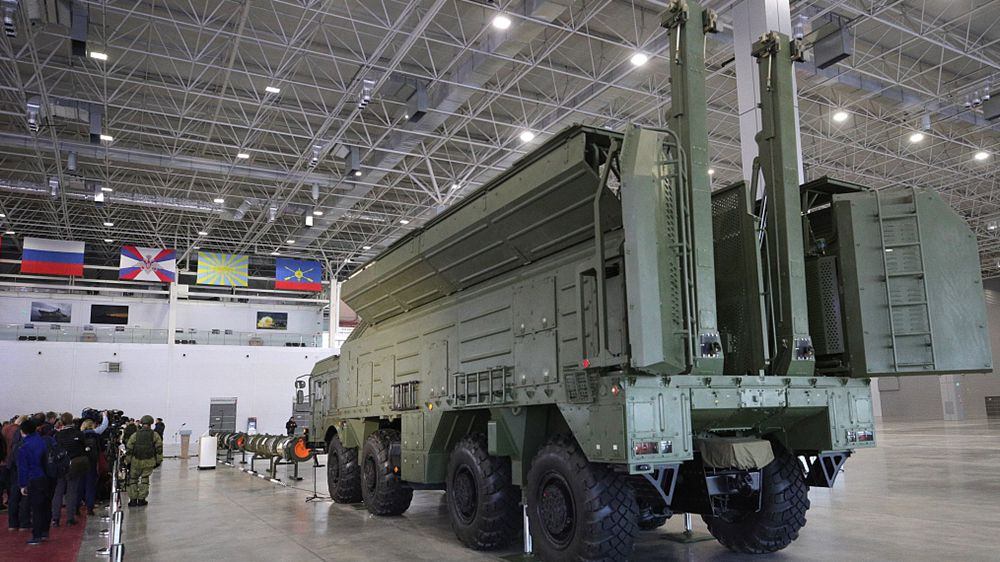
An Iskander-M guided missile system is demonstrated along with the 9M729, which is said to violate the INF Treaty, and the 9Ì728 missile systems after a briefing for military attaches and international media by the Russian Defense Ministry at the Patriot Congress and Exhibition Centre in Kubinka, Moscow Region, January 23, 2019. /VCG Photo
An Iskander-M guided missile system is demonstrated along with the 9M729, which is said to violate the INF Treaty, and the 9Ì728 missile systems after a briefing for military attaches and international media by the Russian Defense Ministry at the Patriot Congress and Exhibition Centre in Kubinka, Moscow Region, January 23, 2019. /VCG Photo
"The main sticking point of the differences on the INF Treaty between Russia and the U.S. is the strategic distrust between both countries," said Zhao, who pointed out that on the one hand, Washington could only provide limited information to accuse Moscow of violating the INF Treaty as it is afraid of exposing its intelligence gathering methods and channels, and on the other hand, Moscow is always unwilling to disclose the detailed information of the relevant missiles.
As for the hot potato, Zhao speaks highly of the Beijing gathering. "It provides an opportunity for the two countries to have deeper exchanges."
At present, it's uncertain whether there has been any progress or fruitful results achieved at the meeting. But the Beijing meeting, themed on strengthening coordination of the five nuclear-weapon states, was anticipated to witness cooperation rather than conflicts.
"If the two countries reach important consensus, the INF Treaty, one mainstay of the international arms control, will escape the doom of being destroyed and abolished," said Zhao.
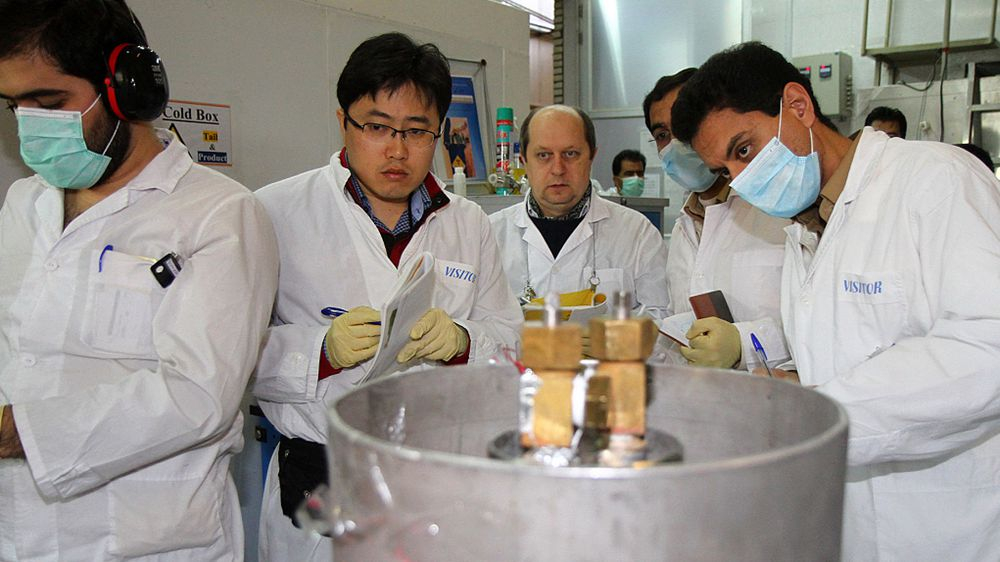
Unidentified International Atomic Energy Agency inspectors (2nd-3rd L) and Iranian technicians disconnect the connections between the twin cascades for 20 percent uranium production at nuclear power plant of Natanz, January 20, 2014. /VCG Photo
Unidentified International Atomic Energy Agency inspectors (2nd-3rd L) and Iranian technicians disconnect the connections between the twin cascades for 20 percent uranium production at nuclear power plant of Natanz, January 20, 2014. /VCG Photo
There are other two nuclear threats the world faces nowadays, respectively the nuclear issues in Iran and the Democratic People's Republic of Korea (DPRK).
The two, which often made the headlines of media outlets worldwide, are not new, but a proper handle of them matters to maintain a peaceful and prosperous world.
By pointing out the Trump administration's hostility towards Iran poses challenges to solve the nuclear problem in the Middle Eastern country, Zhao expressed concern that whether Iran will enhance its nuclear capability remains uncertain as the U.S. withdrew unilaterally from the landmark "Iran Nuclear Deal" reached in 2015.
Meanwhile, Zhao is positive about Beijing's role in the Iran nuclear matter. "Thanks to the development of the projects under the Belt and Road Initiative, a peaceful and stable Middle East is of bigger and bigger geopolitical importance to China," said Zhao, adding that China can use its resources and influences to help build a safe mechanism in the zone full of conflicts.
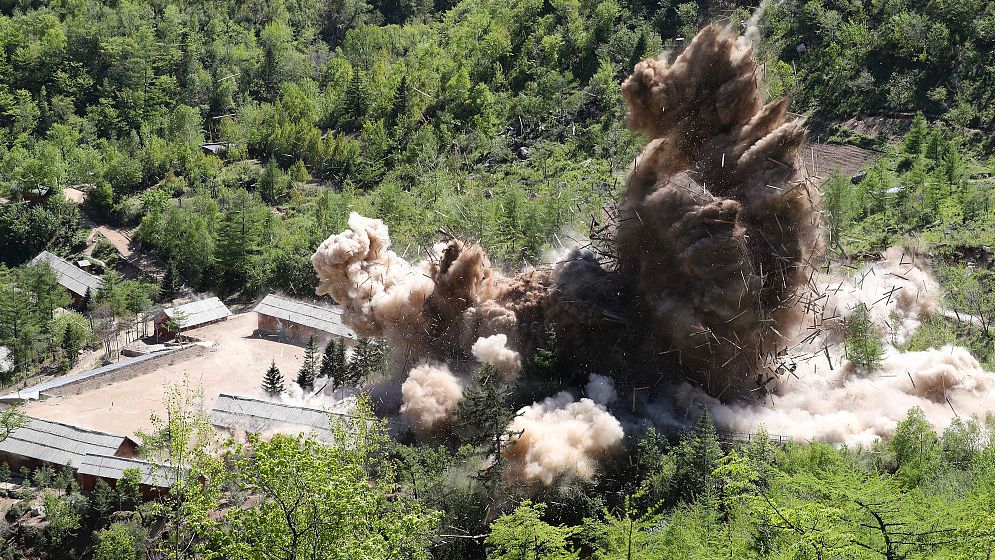
The Punggye-ri nuclear test site is demolished in Punggye-ri, May 24, 2018. /VCG Photo
The Punggye-ri nuclear test site is demolished in Punggye-ri, May 24, 2018. /VCG Photo
About the nuclear crisis in the Korean Peninsula, the successful nuclear tests have made the country have bargain chips in Inter-Korean talks and talks between Kim Jong Un and Trump. But the stagnant progress after the much-hyped Singapore summit makes people hope the reported Vietnam talks between the two leaders in the upcoming February could bring some substantial results.
It's the deep-rooted distrust that can be said to be the main obstacle of any major breakthrough in the first and upcoming second Kim-Trump talks.
In Zhao's opinion, the country's sense of insecurity is the essence of the Korean nuclear crisis. So Zhao said China, along with other countries, should further strengthen connect with the long-isolated country and expand mutual or multilateral exchanges, so that it can return to the international family and have less intention to develop nuclear powers.
Apart from the existing nuclear threats, the world nowadays also faces challenges including the confrontation between the non-nuclear countries and nuclear countries, the emerging missile defense technology and major country's military wrestles in a bid to maintain their geopolitical influence in certain regions.
"To maintain and develop the international mechanism for the non-proliferation of nuclear weapons, it's time for different countries to strengthen exchanges and enhance cooperation in dealing with the nuclear proliferation crises and risks instead of pursuing individual country's interests," said Zhao.

